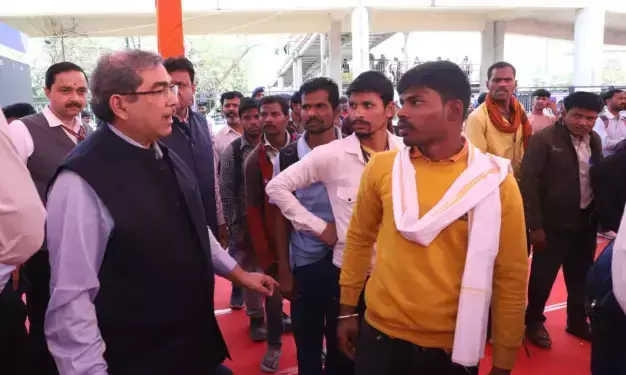Environmental Law: New career in making for Indian law students

This active espousal of the cause emanates from their genuine concern and anxiety about the issue that stems from having experienced first hand ill effects of climate change
A Pew Research Centre survey in 2021 recorded the following findings:
a. Younger population- millenials and adults in Generation Z stand out for their contribution to the cause of climate change.
b. This demographic is more actively espousing the cause and doing more to get involved with the issue through activities such as volunteering and attending rallies and protests.
This active espousal of the cause emanates from their genuine concern and anxiety about the issue that stems from having experienced first hand ill effects of climate change. This growing awareness of environmental concerns among the youth is pushing them to explore careers to combat issues they feel passionately about.
Unlike earlier times, the younger generation is looking to engage in work that satisfies their soul and gives them a sense of purpose to trigger change in society. In this larger context, we are witnessing the emergence of newer career pathways like environmental law that students are looking to pursue. This is now a trending option for students to explore who wish to combat climate change or preserve the world. But before we move any further on the subject, it is important to understand the contours of environmental law and what all it encompasses.
Environmental law refers to rules laid down by local, national and international entities that affect how people treat their surroundings and the planet. This umbrella term includes all branches of law that protect our environment. This includes any policies that ensure climate stability and the safety of natural resources such as land, water, minerals, forests and air.
The following are the types of environmental law specialisations that are available and exist in the space: climate change, energy law, environmental justice, food law, International Environmental Law, land use law, natural resources law and water law.
Climate change lawyers assist clients on probable technological solutions to reduce carbon emissions and global warming. In the energy space, we have lawyers working with the government to develop energy efficient regulation policies. Lawyers are also engaged privately to work as in house counsels.
Lawyers are engaged in legal aid panels to represent marginalised groups against exposure to harmful degradation practices. We have lawyers who keep a check on the negative practices of the food processing industries for the benefit of consumers. Lawyers also engage in cross border work by practicing International Environmental Law to protect the planet by devising and enforcing international treaties. Lawyers are working with public sector, developers and corporations to protect resources and wildlife.
Lawyers also work on the public and private to protect usage of resources such as water, timber, minerals, oil, public lands and wildlife. Lawyers protect against contamination in soil and enforce water laws to protect aquatic ecosystems and avoid oil spills.
In India, budding lawyers can opt to become environmental lawyers in the following manner:- as there are no environmental specialisations available for students at an under graduate level, they can pursue internships with NGO’s, in house departments of corporations and government offices working in the area. Further students can also participate in Moot Court Competitions in this area of law to broaden their knowledge base and write research papers in contemporary topics of this area to build their CV to suit job profiles.
Post receiving their degree of law, students can explore LLM programs with specific specialisations in environmental law to build a deeper knowledge base in the area. Truth be told, the legal field like others is growing in unimaginable ways and students need to come to law school with an open mind to tap into these emerging opportunities.
(Kritika Padode, is Board Member at Vijaybhoomi University)








